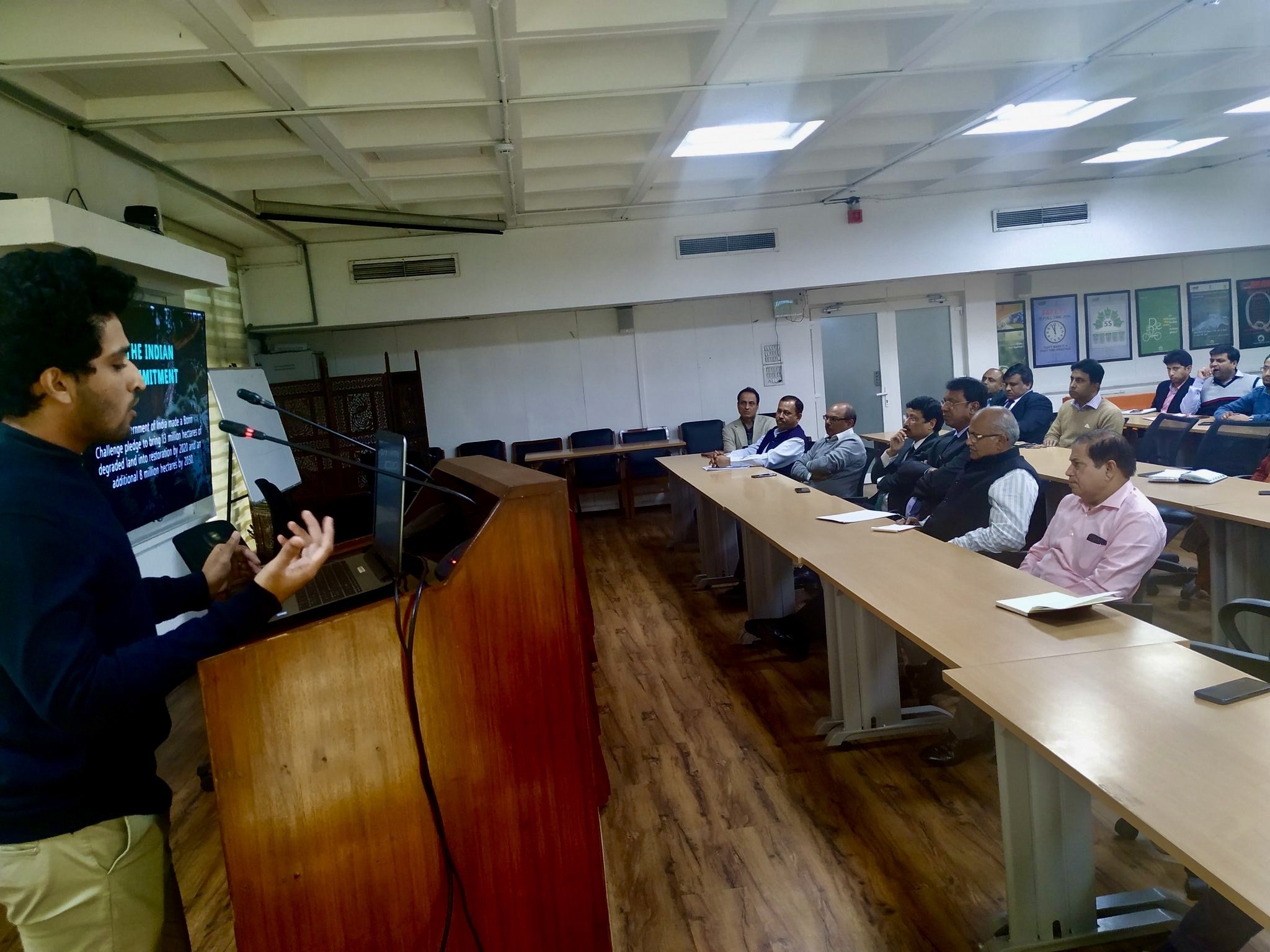Our work:
Our President Mr. Shelly Shaurya made a presentation on “Bamboonomics for Productivity Enhancement of India” at the NCP headquarters in New Delhi before an august gathering of experts, officials of NPC and Director General of NPC, Mr. Arun Kumar Jha. It was a part of the productivity week conducted by National Productivity Council (NCP) wherein it invited experts from various fields to have a presentation followed by open discussion on how productivity can be enhanced in various sectors of the country.
Mr. Shelly Shaurya gave a talk on how bamboonomics can be utilised to enhance the soil fertility in India thereby leading to a significant increase in agricultural productivity.
Background material:
World over the average carbon content in the soil is around 4% while in India it is less than 1% in the plains and less than 2% in the hills. Because of this low carbon content, the productivity of the Indian soil is low compared to the soil with high carbon content.
Now to increase the carbon content wood charcoal known as ‘bio-char’ is needed which is not available in India in the desired quantity nor it is possible to convert the trees into charcoal as that will lead to a large scale denudation and environmental problems. The answer to this problem is bamboo charcoal, having been researched by SS Foundation. It is well known now that if you cut bamboo it leads to carbon sequestration, the rhizomes remain in the soil, binding it, and the new bamboo shoots grow from the rhizomes again in a couple of years leading to further carbon sequestration.
This is where the Bamboonomics pitches in with its bamboo harvesting theory (wherein to grow more bamboo you cut bamboo) and talks about its derivatives namely the bamboo charcoal and activated bamboo charcoal as proven effective tools in climate change. They can hold carbon in the soil for thousands of years and increase land productivity substantially and permanently.
A good carbon content enhances soil fertility and reduces the demand for fertilizers. While the charcoal remains in the soil for umpteen number of years and keep improving the soil fertility, it is extremely cheaper at the same time as compared to fertilizers that are applied to each and every crop every year. The charcoal infusion in the soil is only a one-time application.
The potential of charcoal in minimizing the application of urea is its greatest asset and utility and that would reduce the cost of agriculture production drastically.
All these qualities of bamboo, discovered and unearthed by bamboonomics, give it an edge over others. The bamboo forests and plantations and the Indian tribal community are going to play a big role in achieving the ‘Bonn Challenge Targets’ in the Indian context by the way of “4P1000 Initiative”.
In fact, Bamboo Charcoal is the best bet for the success of the “4P 1000 Initiative”.
Bamboo is one of the best sources to add carbon back to the soil thus not only improving the soil health but also sequestering carbon as charcoal that is made through the pyrolysis process. The bamboo charcoal so long not burnt, keeps its carbon content intact and thus extremely useful in climate change mitigation. The production and application of biochar (mainly Bamboo char or bamboo charcoal) into soils hence needs to be encouraged in India. There could be other types of bio-char other than the wood char. Waste resources like agriculture residue, garden waste, and waste from bamboo plantation and bamboo enterprises can be recycled and reused as biochar. The unique ability of bamboo to grow faster as compared to other tree species provides a good source for bio -char.
The bamboo can be harvested and value addition is done through processing enterprises. The wastage from such value addition processes can be used for converting it into a valued product i.e. bamboo char. The bamboo char thus can be added to the soil while the harvested bamboo culms grow fast, sequestering carbon.
Therefore, bamboonomics can play a crucial role in enhancing the soil quality in India leading to an increase in agriculture productivity.
